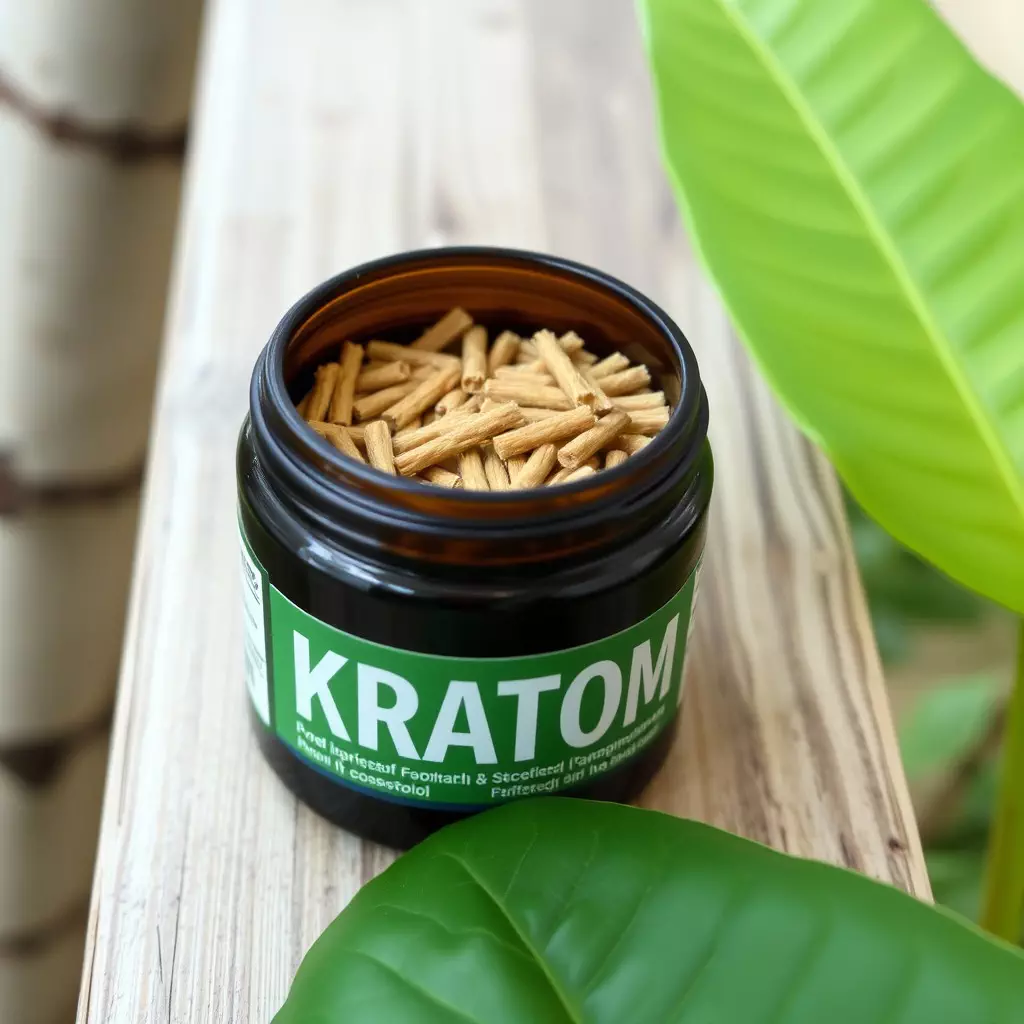Trauma and stress response regulation are pivotal in understanding depression’s intricate tapestry. This article delves into the promising role of kratom as a treatment modality for depression, examining its biochemical interactions and integrating it within holistic care frameworks. By exploring how kratom can modulate stress responses, we aim to shed light on its potential therapeutic benefits and considerations for effective depression management.
- Unraveling the Complexities of Trauma and Stress Response Regulation: A Glimpse into Depression Treatment with Kratom
- The Biochemical Pathways of Kratom: How It Modulates the Body's Response to Trauma and Stress
- Integrating Kratom into Holistic Depression Care: Balancing Benefits and Considerations for Effective Treatment
Unraveling the Complexities of Trauma and Stress Response Regulation: A Glimpse into Depression Treatment with Kratom

Trauma and stress response regulation are intricate processes that underpin the complex phenomenon of depression. The impact of traumatic events can alter the brain’s chemistry, leading to a dysregulation of stress hormones like cortisol. This imbalance often contributes to the development and persistence of depressive symptoms. In recent years, there has been growing interest in alternative treatments for depression, one of which is the use of kratom, a plant-based substance derived from the leaves of Mitragyna speciosa. Kratom contains alkaloids that interact with the brain’s opioid receptors, potentially offering analgesic and anti-anxiety effects, which are often co-occurring conditions with depression. Research suggests that kratom may modulate neurotransmitter systems, including those responsible for regulating mood, such as serotonin and dopamine. Its potential role in depression treatment hinges on its ability to alleviate symptoms of trauma-induced stress and restore a more balanced hormonal response. However, it is crucial for individuals considering kratom as part of their depression treatment to do so under the guidance of a healthcare professional due to its complex interactions and potential side effects. The regulatory effects of kratom on the body’s stress response system present an avenue for therapeutic intervention in depression, though more research is needed to fully understand its efficacy and safety profile within this context.
The Biochemical Pathways of Kratom: How It Modulates the Body's Response to Trauma and Stress

Kratom, a tropical deciduous tree native to Southeast Asia, has garnered attention in the realm of depression treatment due to its potential modulatory effects on the body’s response to trauma and stress. The biochemical pathways through which kratom exerts its influence are complex and multifaceted, involving a variety of neurotransmitters and receptors within the brain. Mitragynine and 7-hydroxymitragynine, two main alkaloids found in kratom, interact with opioid receptors such as mu, delta, and kappa, which play a crucial role in pain perception, emotional regulation, and stress response. These interactions can lead to an attenuation of the body’s stress response, potentially mitigating the physiological and psychological effects of trauma and chronic stress. Additionally, kratom’s action on the adrenal glands may help regulate cortisol levels, a hormone associated with the body’s ‘fight or flight’ response, thereby contributing to its antidepressant properties. Clinical studies have indicated that kratom may offer a natural alternative for those experiencing depression, particularly when it comes to managing the symptoms exacerbated by stress and trauma. However, further research is necessary to fully understand its mechanisms of action and to ensure its safe and effective use in treatment protocols.
Integrating Kratom into Holistic Depression Care: Balancing Benefits and Considerations for Effective Treatment

Kratom, a plant originating from Southeast Asia, has garnered attention in the realm of holistic depression care due to its potential impact on mood regulation and stress response. Depression treatment with kratom is an alternative approach for individuals seeking relief beyond conventional pharmaceuticals. Proponents suggest that certain alkaloids found within kratom leaves, such as mitragynine and 7-hydroxymitragynine, may contribute to an improved mood and a reduction in stress-related symptoms by interacting with the brain’s opioid receptors. When integrated into a comprehensive treatment plan, kratom can offer a sense of well-being and help manage depressive episodes.
However, it is crucial to approach the use of kratom with caution and a full understanding of its potential benefits and drawbacks. The regulatory status of kratom varies by region, and its efficacy and safety profile remain subjects of ongoing research. Healthcare providers advising on depression treatment with kratom must weigh the anecdotal reports of its therapeutic effects against the need for rigorous clinical evidence. Additionally, the long-term effects of kratom use are not yet fully understood, and there may be risks associated with its interaction with other medications or substances. As such, individuals considering kratom as part of their depression care should do so under the guidance of a qualified healthcare professional who can help navigate the complexities and ensure that this treatment complements a holistic approach to mental wellness.
Trauma and stress response regulation are pivotal aspects of understanding and treating depression. The article has explored these topics, delving into the biochemical pathways influenced by Kratom as a potential avenue for depression treatment. As outlined in “Unraveling the Complexities of Trauma and Stress Response Regulation: A Glimpse into Depression Treatment with Kratom,” Kratom’s interaction with neurotransmitters offers a unique approach to managing depression symptoms. Furthermore, “The Biochemical Pathways of Kratom: How It Modulates the Body’s Response to Trauma and Stress” provides insight into the mechanisms behind its therapeutic effects. Lastly, “Integrating Kratom into Holistic Depression Care: Balancing Benefits and Considerations for Effective Treatment” emphasizes the importance of a comprehensive treatment strategy that includes Kratom when appropriate, while also acknowledging the need for further research and careful consideration of its use in conjunction with other treatments. In conclusion, while Kratom holds promise as an adjunct to depression treatment, it is essential to approach its integration into care with caution and scientific rigor.






